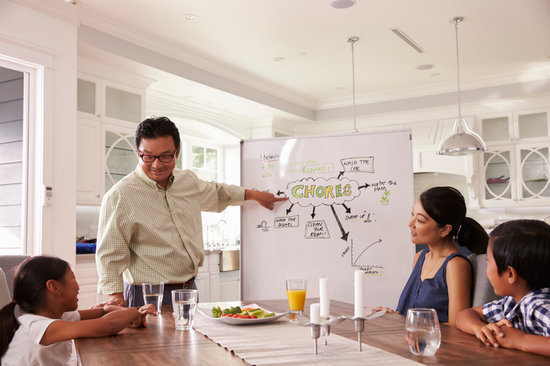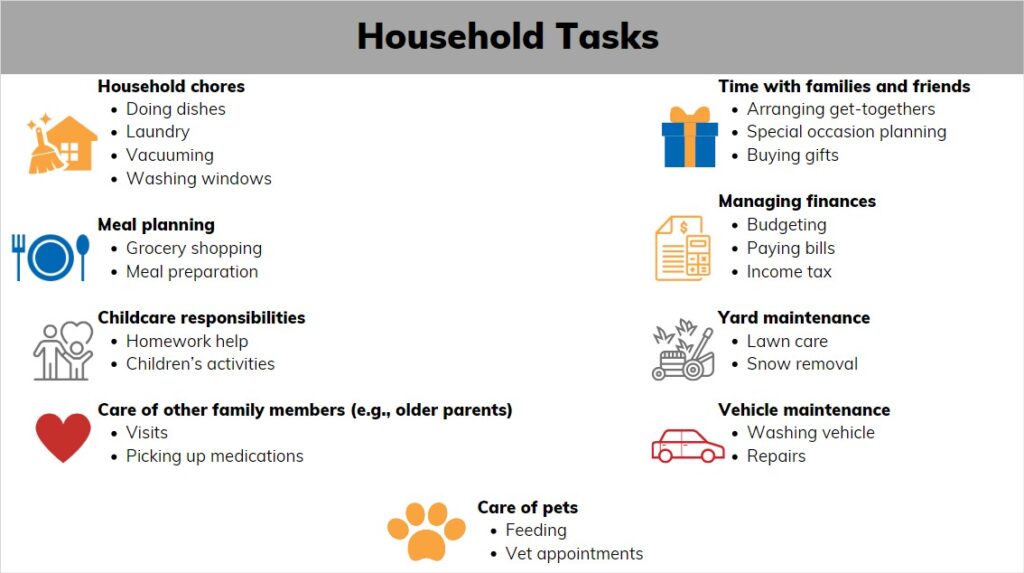Need Something More?
Check out our self-directed Spouse or Significant Other Wellbeing Course.

Recognition and appreciation of the ways that family members contribute to the household can reduce conflict. Many PSP families have busy households with a lot of demands on their time. Identifying and sharing household tasks can ensure that families also have time for leisure and rest.
A planned meeting as a couple/family can be an effective way to connect and make plans. You can use this time to discuss the division of household responsibilities and renegotiate if needed (see Household Tasks List below). It can also be a time to check in regarding how everyone is doing/feeling. You can make upcoming family plans, show appreciation to one another, or share exciting news or concerns. Family meetings are also opportunities to practice speaking and listening skills.
To have meetings that suit your family’s unique needs, consider the following:
Once you have decided on the frequency of meetings and considered everyone’s availability, schedule your meetings and make a commitment to attend. After each meeting, talk about what went well and potential changes for upcoming meetings.
Together, make a list of all your household tasks (e.g., housework, preparing meals, vehicle maintenance, children’s activities, appointments, managing finances, etc.). Note the specific responsibilities within each area, how long it typically takes to complete the task, and how often the task needs to be completed. The purpose of this exercise is to work toward dividing household tasks in a way that is a good fit for your family and your current situation. This is a chance to review the division of labour within your family to see if anything needs to shift or change.
When creating your list together, discuss:
Here is an example of household tasks to consider:

Below is a template for creating a Household Tasks List. You may want to create a customized list and display it where it can be viewed by the whole family. Use the download button to save and print your list.
Check out our self-directed Spouse or Significant Other Wellbeing Course.
Goldsmith, B. (2012, September 5). 10 tips for holding a family meeting: Hold the best meeting you’ll ever attend with the people you love the most. Psychology Today. https://www.psychologytoday.com/ca/blog/emotional-fitness/201209/10-tips-holding-family-meeting
Gottman, J.M. & Silver, N. (2015). The seven principles for making a marriage work. Harmony Books.
Petriglieri, J. (2019). Couples that work: How dual-career couples can thrive in love and work. Harvard Business Review Press.